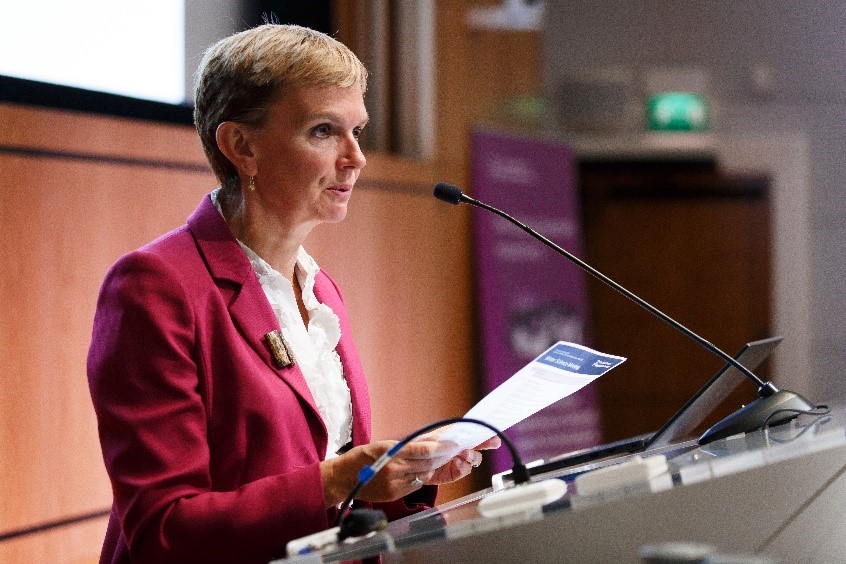Back in mid-June, the Academy hosted an online workshop for national medical academies from low & middle-income countries to learn from each other’s responses to the COVID-19 pandemic.
Today, [10 September 2020], the Academy launches a report of the workshop summarising the conversations taking place across three key areas – public health; social and behavioural responses; and clinical care. Representatives from 11 countries came together to share experiences and challenges, and discuss ways to improve the global response and preparedness in future. Some of the key themes to emerge included:
- International interdisciplinary collaboration: This includes openness and data sharing, joint research efforts, and early and continued involvement of social and behavioural scientists in country responses as vital factors.
- Innovation and adaptation: Countries will need to continue to develop new approaches by making use of new technologies, delivering effective communications and public health messaging, and adopting balanced disease-control strategies, which take into account health inequalities and community-based responses.
- Leadership, evidence and trust: The meeting highlight the importance of public trust in adherence to control measures. As such, participants called for timely, well-organised and integrated government-wide responses, informed by scientific advice, as an independent and trusted sources of information.
The workshop’s steering committee reflect below on some of the key points from the meeting - read the full report here.
Professor Rosalind Smyth CBE FMedSci, Director of the UCL Great Ormond Street Institute of Child Health
“Like all pathogens, COVID-19 blindly ignores border control regulations. It has traversed the globe, affecting nearly every country. To control this deadly virus we must listen and learn from one another, globally.
“At the time The Academy of Medical Sciences held this workshop (June, 2020) some countries, such as Uganda, had prepared their hospitals to receive large numbers of patients, based on experience from elsewhere, but hadn’t recorded any severe cases. Other countries like Malaysia had learned important lessons about disease control from previous epidemics of MERS and SARS-CoV-1 and had relatively small numbers of cases. Close neighbours can differ vastly: Brazil had and still has very large numbers, while Argentina, at that time, had relatively few.
“Complacency is dangerous. We need to learn from the different patterns of the spread of COVID-19 country to country, picking apart the drivers behind the transmission and sharing this invaluable knowledge. Studying these trends will be slow and painstaking, but vital, as this pandemic will be with us for years to come.”

Professor Guy Thwaites FMedSci, Director of Oxford University Clinical Research Unit, Viet Nam and Professor of Infectious Diseases, University of Oxford
“I think the really important point is leadership. Many of the differences in ‘success’ between countries have been dependent upon speed of response and communication – both essential facets of leadership, especially during a pandemic. I have direct experience of this in Viet Nam, with a Government who have rather limited resources but have done extraordinarily well by doing the simple things quickly and well.”
Professor Heidi Van Rooyen, Group Executive, the Impact Centre, the Human Sciences Research Council, South Africa
“The core principles of disease control are the same everywhere, but innovative engagement from local people has given us the best examples of COVID-19 control. We’ve seen local communities design and mass-produce their own facemasks as global supply chains buckled, seen people provide safe places for others to self-isolate, and neighbours step in to alleviate food insecurity.
“Through this pandemic communities have once again shown their ability to adapt, to innovate, to turn to each other, and find ways to offer support and show solidarity. Across the world, and in low and middle-income countries, we have seen top-down authoritarian approaches on how to manage COVID-19. While useful, these are not sustainable. Approaches that start with the people most infected, and most impacted, are the ones that will stick. Bottom-up solutions will best speak to local contexts and develop messages and approaches for dealing with this virus that will be relevant and understood by those who need them the most. In Kenya, the Mombasa County Child Rights Network (MCCRN), addresses the impact of the pandemic on children. Through online meetings and live media broadcasts with government officials, community leaders and organizations, children and youth share their fears, anxieties and how COVID-19 affects them. These in turn shape policies and interventions from the ground up.
“Communities themselves can help work out how best to control the spread of COVID-19 in their area, and this decentralised, more nuanced, approach will only get more important as the pandemic continues.”
This workshop, ‘Addressing the challenges of the COVID-19 pandemic in low- and middle-income countries’ was part of our series of workshops with the Global Challenges Research Fund. Download the full meeting report here.

